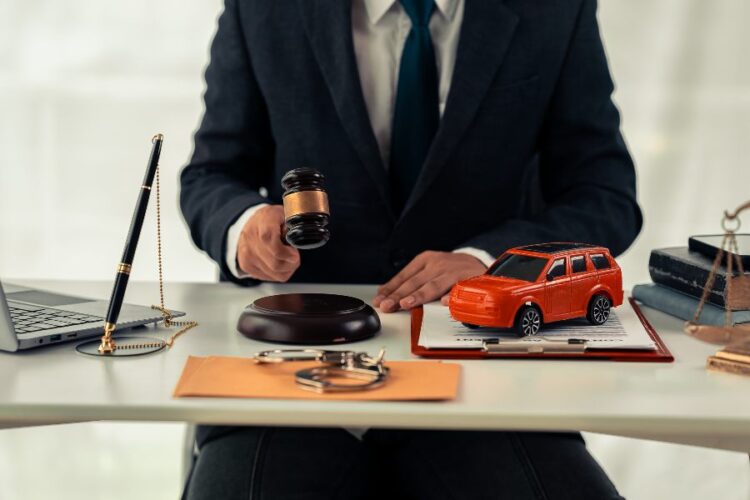The flashing lights, the upset officer, the threat of jail time or a suspended driver’s license; a charge of DUI can be a lot to take in. But it doesn’t necessarily result in a conviction. If you’ve got a good defense, you can challenge the prosecution’s case and protect your rights.
This article will take you through seven common defense strategies to combat a DUI case, so you understand your rights.
Understanding Your Rights During a DUI Stop
When you are pulled over by police, they must have reasonable suspicion to believe you’ve broken a traffic law. They then must have probable cause to take you in for questioning for DUI. There are various steps in the process that can, in theory, be contested in court.
Police officers tend to make judgments based on their observations of your behavior, speech, and appearance. They may observe bloodshot eyes, slurred speech, or a scent of alcohol. But these observations in and of themselves are not always good indicators of impairment. There are many things that can create similar symptoms, like fatigue, allergies, or some medical conditions. Knowing these potential weaknesses in the prosecution’s case is crucial
Strategy 1: Challenging the Initial Stop
One of the strongest defense strategies is to question whether the police were justified in stopping you in the first place. As mentioned, officers need reasonable suspicion that you broke traffic laws or were driving unreasonably. If they can’t make a case for this, any evidence obtained during the stop could be suppressed.
Common reasons that officers cite for making DUI stops involve swerving between lanes, speeding, or not signaling. These actions don’t necessarily equate to intoxication, though. A good defense attorney will scrutinize the police report, searching for inconsistencies or poor reasons for the stop. They may also ask for dashcam video or other evidence that would be inconsistent with the officer’s version of events.
Other times, officers make stops at DUI checkpoints, which are subject to certain legal mandates. Such sobriety checkpoints must adhere to established procedures, and if they fail to do so, the evidence obtained may be inadmissible at trial.
Strategy 2: Challenging Field Sobriety Tests
Field sobriety tests are standard for DUI investigations, but they’re far from infallible. The most commonly administered tests are the Standardized Field Sobriety Tests, the walk-and-turn test, and the one-leg stand test. Although these tests are designed to detect impairment, they’re subjective and can be influenced by a myriad of things.
Your physical condition, age, weight, and even the weather can hinder your performance on these tests. If you are hurt, have medical issues, or are just anxious, you will not perform well on these tests even if you are absolutely sober. Understanding these nuances in the case is imperative. With adept legal counsel, you can beat your case with a DUI lawyer in Los Angeles, or others near you, who understands how to question these subjective reports.
Additionally, officers are required to conduct these tests under certain procedures. If they go against the set methods or do not give adequate instructions, the outcomes may be questioned.
Strategy 3: Challenging Breathalyzer Results
Breath tests are another crucial factor in DUI cases, but they’re not foolproof. The Alcotest 7110 and other such machines must be calibrated and maintained in a certain way to render valid results. If maintenance records on the machine are defective or if the machine was poorly calibrated, the results might be challenged.
Several factors can also affect breath test accuracy. Mouth alcohol from recent drinking, mouthwash, or even certain medical conditions can inflate readings. The presence of medical conditions like diabetes or acid reflux can also impact results. Plus, the officer must observe you for a specific period before administering the test to ensure accuracy.
Temperature, humidity, and even radio frequency interference have been known to impact breathalyzer results. Procedures and regulations also lay out particular requirements regarding how these tests must be administered. If these procedures were not followed correctly, the results could be questioned.
Strategy 4: Blood Test Challenges
Blood tests are said to be more accurate than a breathalyzer, but the results are not absolute. The chain of custody must be maintained from the moment your blood is drawn until it’s analyzed. Any break in this chain could compromise the evidence.
Medical personnel must use correct procedures while taking blood, and the sample must be stored and shipped properly. If the documentation had any gaps or if the sample was tainted, the results could be questionable. Some medical conditions also influence blood alcohol concentration readings.
Defense lawyers will also scrutinize the qualifications of the individual who drew blood and the lab that tested it. They may also look into whether the sample was adequately preserved and whether the testing equipment was in proper operating condition.
Strategy 5: Increasing Blood Alcohol Defense
The increasing blood alcohol defense has its roots in the scientific reality that your blood alcohol level keeps increasing for a while after you stop drinking. That would mean your blood alcohol concentration at the time of testing could be greater than it was when you were actually driving.
This is especially a good defense if it’s a long time since you last drove, but you were just tested. Say you got pulled over shortly after leaving a bar, for instance. Your blood alcohol level could have been under the limit while driving, but could have risen to above the limit by the time you were tested at the police station.
Experts are also key players in this defense, testifying on how alcohol is metabolized and absorbed by the body. They can estimate your blood alcohol level at the time of driving, given when you had been drinking and other details.
Strategy 6: Procedural Violations and Constitutional Rights
The police must adhere to certain procedures under DUI investigations. If you’re denied your constitutional rights or they don’t follow the correct procedures, evidence could be challenged. This ranges from denial of your Miranda rights, illegal search and seizure, or refusal to let you call an attorney.
The implied consent statute mandates that drivers undergo chemical testing, but the officers are supposed to inform you of the requirement and refusal consequences. If they do not do so properly, your refusal may not be allowed into court.
A motion to suppress evidence is a popular strategy when there are violations of procedures. In case of success, such motions would damage the case of the prosecution severely, at times causing charges to be brought down or dismissed entirely.
Strategy 7: Challenging the Prosecution’s Evidence
A full defense consists of reviewing all the evidence the prosecution will present. This involves checking for errors in the police report, viewing video recordings, and investigating the training and experience of the officer.
Police report inconsistencies are more common than most people realize. The officer can inaccurately note the time of the stop, what you did do, or what you actually said. These inconsistencies can be employed to discredit the believability of the officer’s testimony.
Video footage from dashcams or body cameras may sometimes conflict with the officer’s written report. If the footage is not in conformity with what the officer reports about your actions or performance on field sobriety tests, it can be effective evidence in your defense.
Conclusion
The law can be complicated and intimidating, but knowledge of your rights and the defense tactics that are available to you gives you the power to make an intelligent decision about your case. Proper legal counsel and a solid defense plan give you the tools you need to achieve the best possible outcome for your DUI case.










